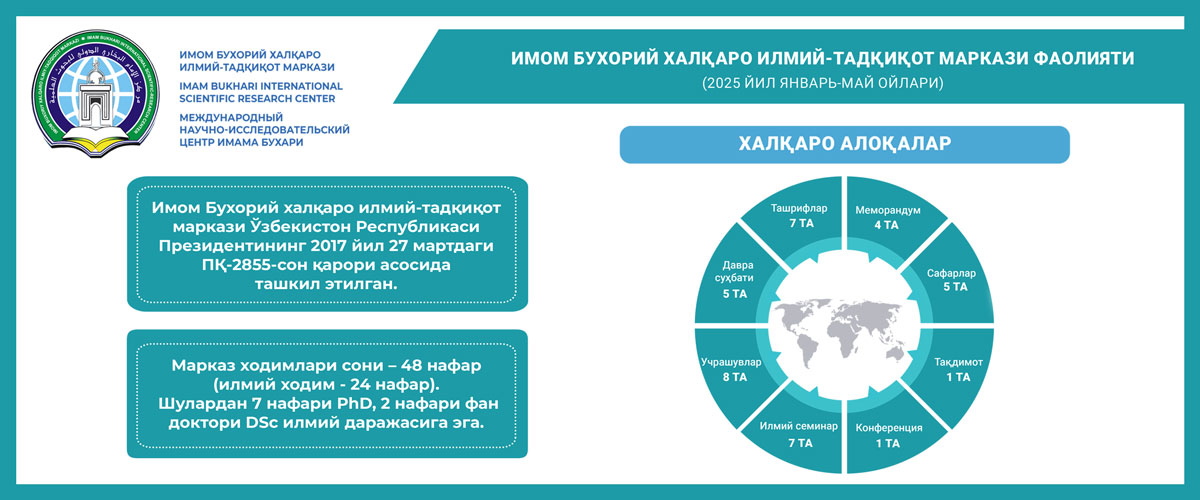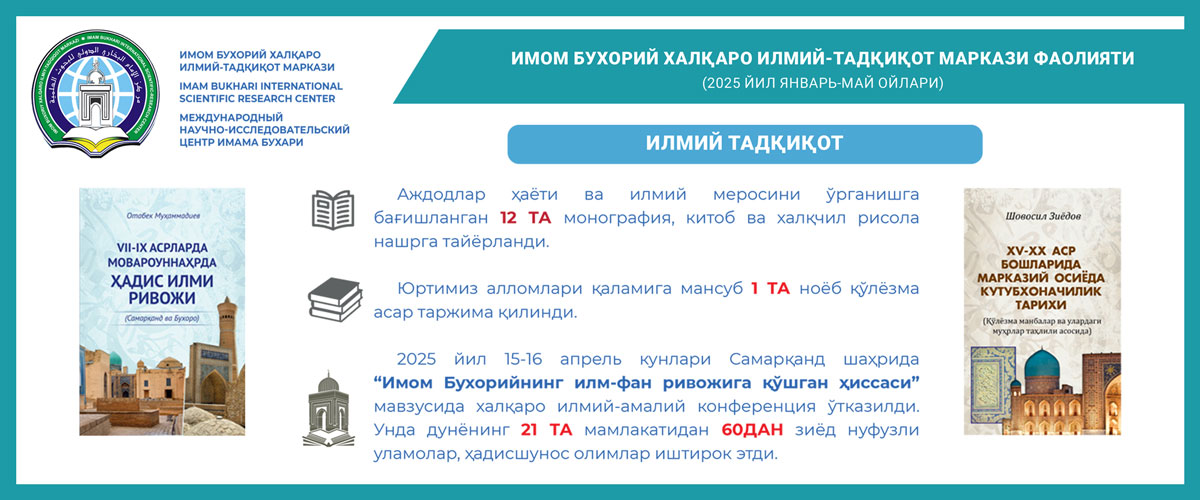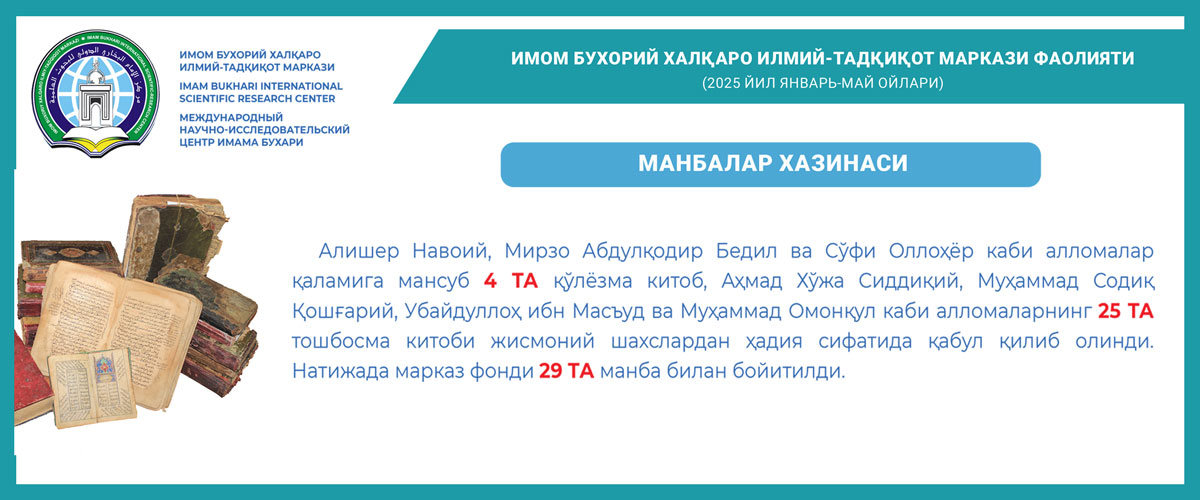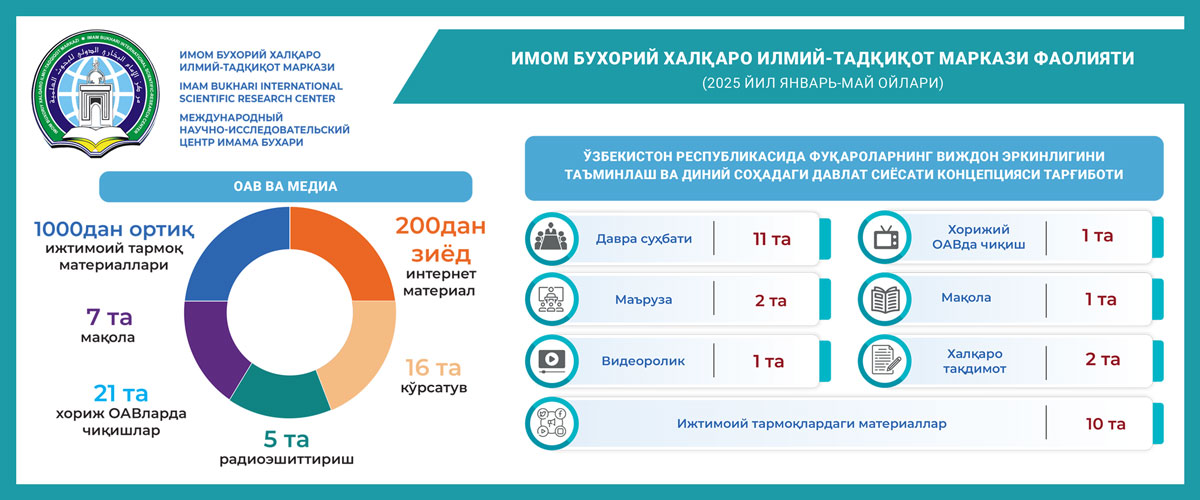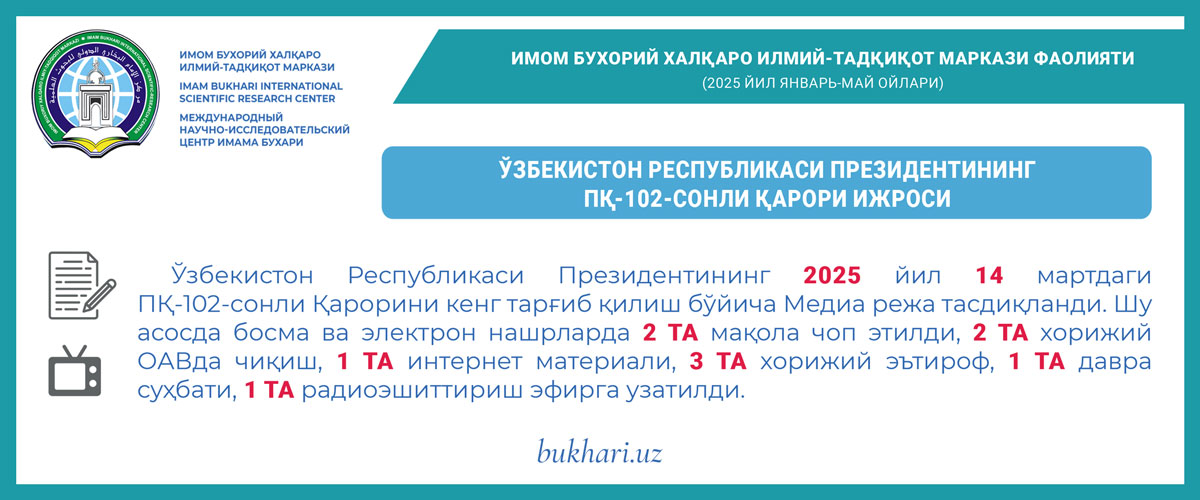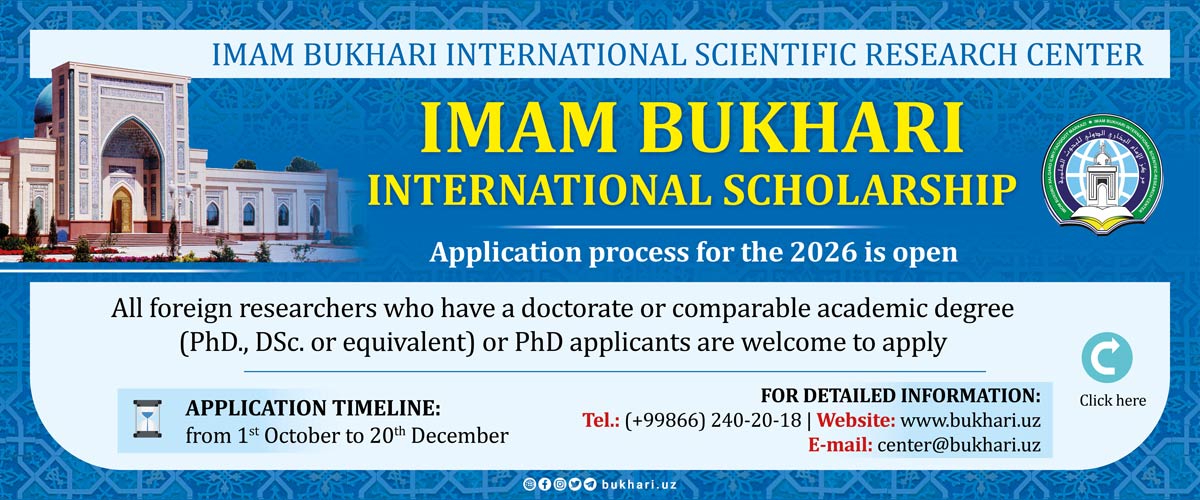In one of the gatherings of the experts in Hadiths one of the famous specialists in this field al-Faryabi spoke about a Hadith and characterized it that it was originally mentioned by Abu Hamza and it was taken by Abu-l-Hattab and it was borrowed by Sufyan Abu Urva. Among the participants of this session, nobody had clear knowledge about the authors of this Hadith except Sufyan because the authors were mentioned only by their titles (like Abu-l-Hattab, Abu Hamza). At that very critical moment, Imam al-Bukhari took the floor and said: “Abu Urva is Muammar ibn Rashid, Abul-Hattab is Qatada ibn Daama and Abu Hamza is Anas ibn Malik. Due to the greatness and revolutionary character of their contribution to the science of Hadiths, their names are mentioned only by their nicknames in the scientific circles”.
Since the time of sahabas1 of Prophet Muhammad (saas), truthfulness, correctness and educational value of Hadiths were the main principle in the process of choosing and collecting Hadiths. Even at that time, there were cases of erroneous Hadiths. After the death of the Prophet, there was a short period of time when there was no need for such analysis of the nature and meaning of Hadiths. As the number of roviys grew, there appeared a necessity in analysing the nature and meaning of Hadiths deeply. Among the experts in Hadiths, more attention began to be paid to this very problem in the science of Hadiths, especially to the personality of the authors of Hadiths and those who used to cite them from different sources. Special rules and recommendations were worked out on using Hadiths in different situations.
Concluding our ideas, we might say that the study of erroneous character of Hadiths was of great importance and demanded deep knowledge of the case,real devotedness to the problem and neutral position in cases of argument. In this matter Imam al-Bukhari was the best and unequal example of sincere and true specialists in this field.
The ideas and reviews of erroneous Hadiths made by Imam al-Bukhari contained neutral position, deep grounds of truthfulness and moral value of the Hadith. In order not to offend the colleagues, he expressed his own attitude to the proble m under discussion carefully and correctly. In relation to the authors of citations of erroneous Hadiths, he seldom used to tell somebody “he created it himself”. His blame about erroneous Hadiths was very simple like “misinform about the Hadith (munkir al-Hadith)”. Soon it became rule in the science of Hadiths that if Imam al-Bukhari expressed negative idea (munkir al-Hadith) about one of the roviys of Hadiths, the other specialists never cited a Hadith from him. As Ibn al-Qattan, a leading specialist in Hadith science, said Imam al-Bukhari used to say: “If I say about a specialist in Hadiths a negative opinion (munkir al-Hadiths), people never cite a single Hadith from him”.
As is known from the history, Imam al-Bukhari used to have a number of teachers and tutors who taught him the science of Hadiths. One of them was “Musaddid” meaning “the man who shows the right way” and Imam al-Bukhari believed him completely. He often said: “Musaddid is a person the meaning of whose name fully coincides with his behaviour and character. Whether I keep my books or whether he keeps my books, it makes no difference. I fully believe him”. These words denote that he was not indifferent to the safety of his books and he believed his teachers wholeheartedly, i.e. he was not indifferent to the fact who held his books because he treated his books as carefully as he treated his Hadiths.
During his lifetime Imam al-Bukhari used to spend his money for charity, helping the ordinary people, especially the students and teachers doing their investigations in the Islamic science were at the centre of his attention, i.e. he used to provide them with means of sustenance. Each time when he was engaged in commercial work, he used to allot 500 dirham for the poor and needy people to support them financially. More charity he showed to the students and teachers of madrasahs, supported them financially, and summoned them to learn and investigate the Hadiths of Prophet Muhammad (saas). In his personal and every-day life, he was always an example of modesty and unpretentiousness. He used to put on a modest air in his relations to surrounding people. He did not use to like pomposity and arrogance. He used to be patient and kind-hearted in all his relations to ordinary people, especially to the representatives of science and knowledge.
Ubaydulla Uvatov Professor, Doctor of History
Press service of ISRCIB
 Imom Buxoriy xalqaro ilmiy-tadqiqot markazi bukhari.uz
Imom Buxoriy xalqaro ilmiy-tadqiqot markazi bukhari.uz
